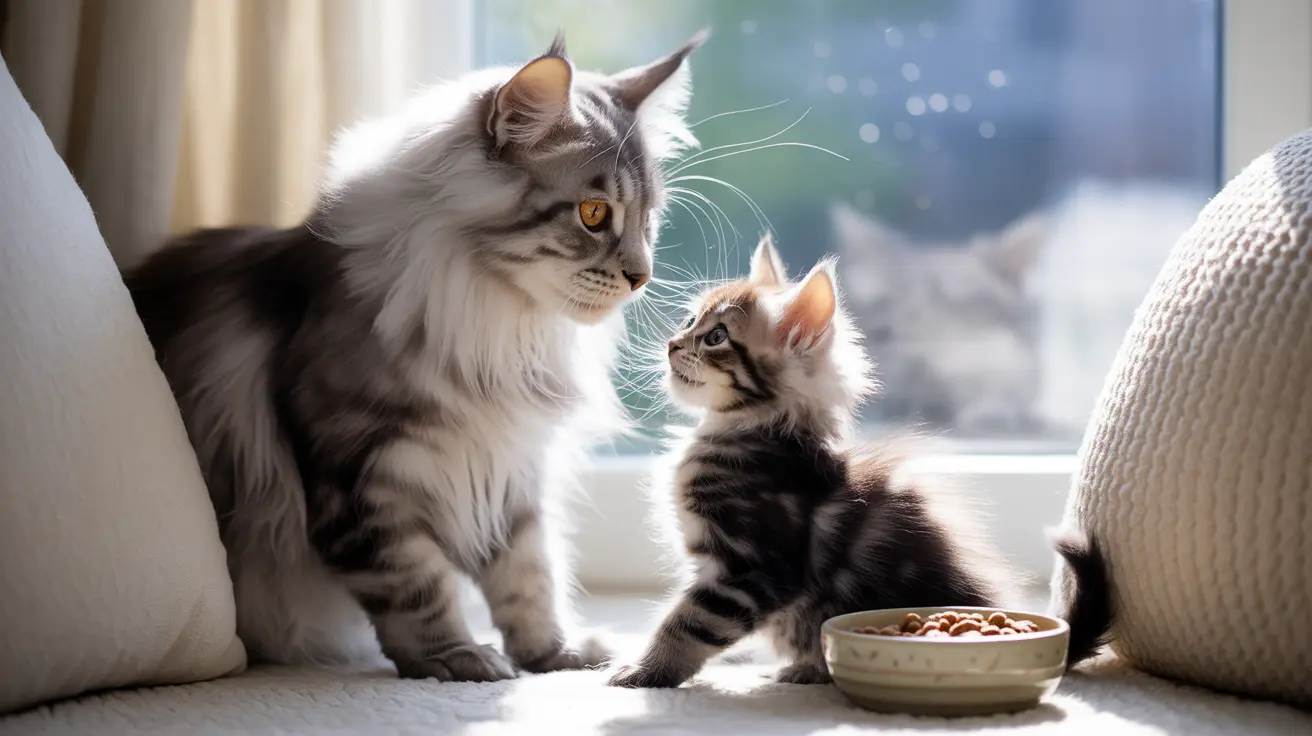Natural Instincts and Weaning Behavior
Mother cats naturally begin showing assertive behavior toward their kittens during the weaning process, typically around 6-8 weeks of age. This seemingly aggressive behavior serves as a teaching mechanism, helping kittens understand it's time to transition from nursing to solid food.
- Pushing kittens away from nursing attempts
- Growling or hissing when kittens approach
- Light swatting or nipping to establish boundaries
- Walking away when kittens attempt to nurse
Hormonal Changes and Sexual Maturity
A significant trigger for maternal aggression occurs when the mother cat returns to her reproductive cycle. Female cats can enter heat as early as eight weeks after giving birth, causing hormonal changes that reduce their maternal instincts and patience with older kittens.
Additionally, as kittens approach sexual maturity (around 4-6 months), mothers may view them, especially males, as potential competitors or mates, leading to increased aggression and territorial behavior.
Territory and Resource Protection
As kittens grow older, mother cats begin viewing them as potential competitors for resources rather than dependent offspring. This shift typically involves:
- Defending feeding areas
- Protecting favorite resting spots
- Guarding human attention and affection
- Establishing clear territorial boundaries
This behavior is particularly common in indoor environments where space and resources may be limited.
Signs of Normal vs. Concerning Aggression
Normal maternal aggression typically includes:
- Brief episodes of swatting or hissing
- Controlled demonstrations of dominance
- Behavior that doesn't result in injury
- Gradual increase in independence-promoting actions
Signs that warrant veterinary attention include:
- Sudden, extreme aggression
- Attacks resulting in injuries
- Persistent hostile behavior
- Mother cat showing signs of illness or distress
Managing Mother Cat Aggression
To help maintain harmony between mother cats and their older kittens:
- Provide multiple feeding stations and litter boxes
- Create separate resting areas and hiding spots
- Ensure plenty of vertical space for escape routes
- Consider gradual separation if aggression escalates
Environmental enrichment can help reduce tension by giving cats multiple resources and territory options.
Frequently Asked Questions
Why do mother cats attack their older kittens during the weaning process?
Mother cats use mild aggression during weaning to teach kittens independence and encourage them to eat solid food. This natural behavior helps kittens develop necessary survival skills and understand boundaries.
How does a mother cat's return to heat affect her behavior toward her grown kittens?
When a mother cat returns to heat, hormonal changes can make her less tolerant of her kittens. She may become more aggressive as her focus shifts from nurturing to preparing for potential new pregnancies.
Can territorial instincts cause a mother cat to be aggressive toward her older kittens?
Yes, as kittens mature, mother cats often view them as competition for resources and territory. This can lead to aggressive behavior aimed at establishing boundaries and protecting vital resources.
When should I be concerned about maternal aggression becoming harmful to kittens?
Concern is warranted if the aggression results in injuries, persists beyond normal weaning periods, or is accompanied by signs of illness in either the mother or kittens. Professional veterinary intervention may be necessary in these cases.
How can I help reduce conflict between a mother cat and her older kittens as they mature?
Provide multiple resources (food bowls, litter boxes, sleeping areas), ensure adequate space, and consider gradual separation if needed. Environmental enrichment and vertical space can help reduce tension and provide escape routes.
Understanding and properly managing maternal aggression in cats helps ensure the healthy development of kittens while maintaining household harmony. Remember that most maternal aggression is normal and temporary, but don't hesitate to consult a veterinarian if you have concerns about your cats' behavior.






